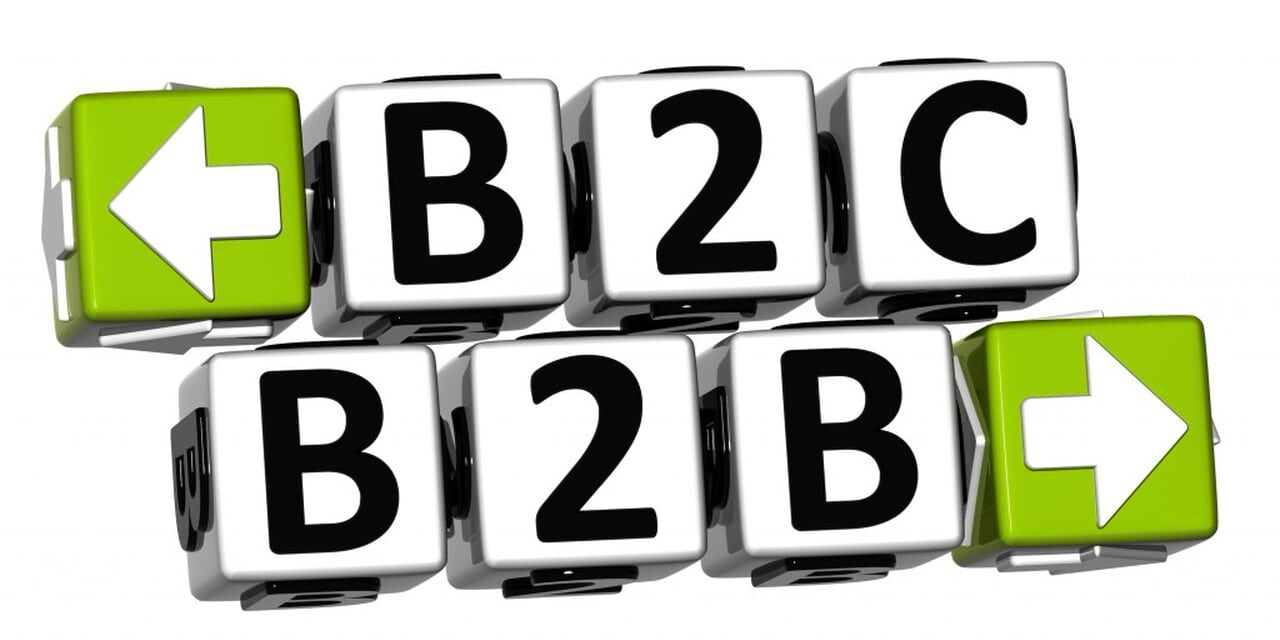The core concept of content marketing is to deliver value to its target content. Even though terms B2B and B2C content marketing appear to be similar, its marketing strategies and tactics differ greatly.
Let’s take a look at the three key distinguishing aspects that separate B2B and B2C marketing
Setting Goals
One of the major differences between content marketing in B2B and B2C industry becomes apparent when you are setting goals based on target audiences. One common goal for both B2B and B2C content marketing is to raise brand awareness. Besides brand building, the differing needs and habits of the customer define the goals of the content.
The following tables demonstrates the goals that hold higher priority for B2B and B2C content marketing:
| B2B Goals | B2C Goals |
| Generating leads | Nurturing leads |
| Customer engagement | Customer retention |
| Sales | Up-sell/cross-sell |
A recent survey from MarketingProfs and the Content Marketing Institute has shown that the primary objectives for B2B companies who are investing in content marketing are generating leads, and boosting engagement and increasing sales. The primary goals of B2C marketing are nurturing existing leads, retaining customers and generating up-sells and cross-sells.
Take an example of a B2B company that wants to sell SaaS products. SaaS products are usually used businesses based on a particular subscription model. The success of SaaS products relies on the willingness of clients to commit to long-term investment in the product. As SaaS products require significant investments, potential customers will think twice or thrice before making a purchase. Thus, the goal of content marketing is to convince potential customers to trust the product and grasp its value. Generating leads by building trust is the main goal in this example. On the other hand, a B2C company wants to sell FMCG products. These type of products are durable and sold at relatively low cost. Here the purchasing processes are different as buying such products is quick, easy and usually cheaper. Additionally, it does not require much commitment or hesitation from the customer. The goal of the content marketing, in this case, is to create an urge for buying.
Determining strategies
While determining the strategy for creating B2B content, marketers should adopt knowledge marketing. Knowledge marketing focuses on two major aspects: increasing the visibility of a brand and generating leads. Thus, a content marketer must address the exact issues bothering the potential clients. By addressing these problems, a content marketer can increase a brand’s visibility among people who were looking for answers.
B2C content marketing focuses on generating the urge for purchasing by creating content that appeals to customer’s emotions and identity. This strategy is called “identity marketing”. Customers who buy products of a particular brand identify that brand with certain virtues or qualities, and when they purchase these products, they attach these virtues to themselves and make them part of their own identity.
Selecting a platform
Content marketing cannot be complete without content distribution. Being all over the web is not necessarily a good distribution strategy. You want to appear on platforms that have your target audience.
For example, LinkedIn is the best option for presenting B2B content. Other knowledge oriented platforms are Reddit, Quora, Yahoo Answers, HARO, and other professional discussion groups. These platforms have been proved effective for B2B content marketing. For B2C, on the other hand, social networks that focus on individual and personal expressions like Facebook, or platforms that have strong visual elements such as Instagram and Snapchat are ideal.
It is critical that you are aware of the differences between B2B and B2C content marketing. To use B2C content marketing strategies on a B2B audience would spell a disaster for your content marketing. It all comes down to developing an innate understanding of your target audience and keeping in mind their interests, preferences, fears for making decisions on your content marketing campaigns.

